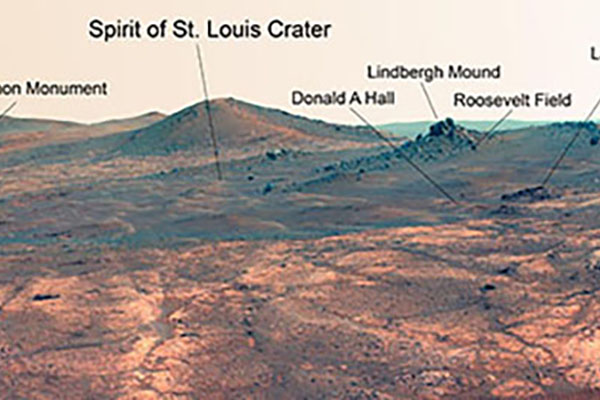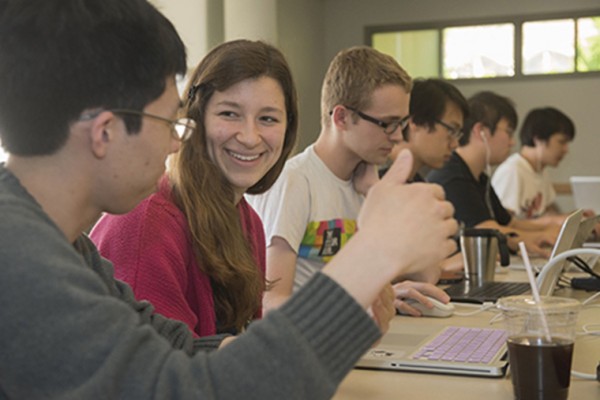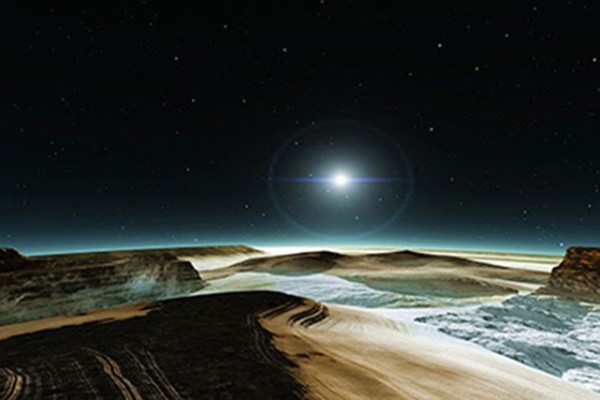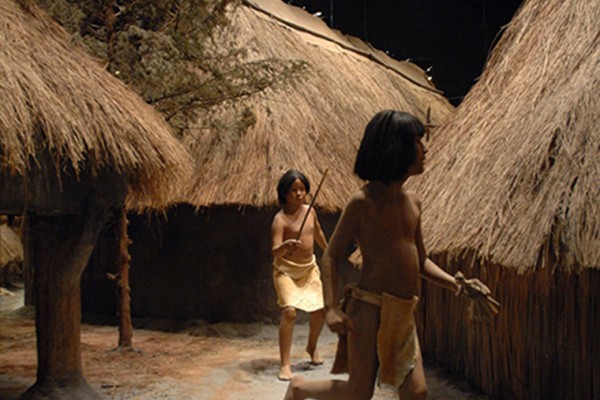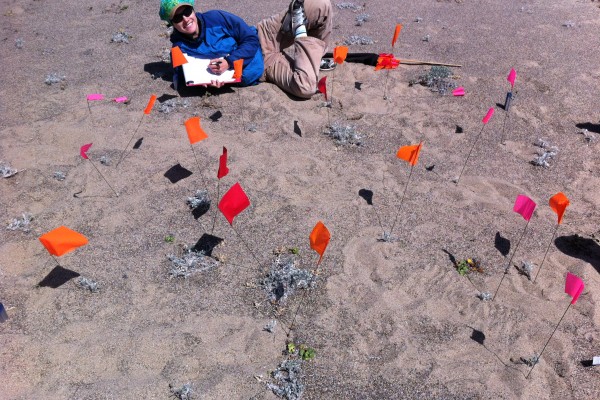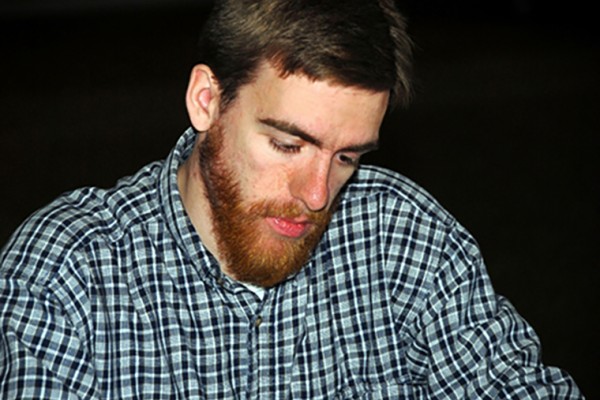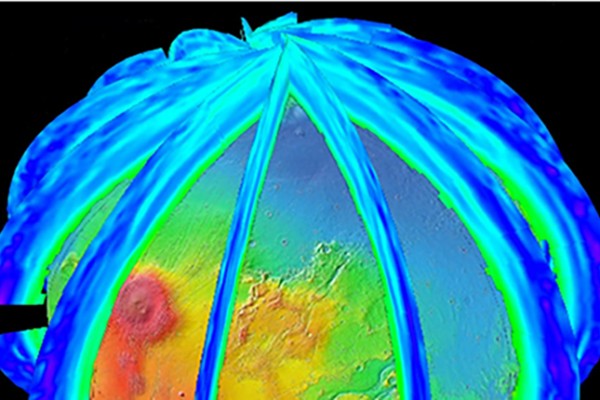Their classroom is the desert
The hallmark of the 18-month Pathfinder Program in Environmental Sustainability at Washington University in St. Louis is the field trips to ecosystems, such as the Mojave Desert, that give students the chance to see and touch the land they have been studying. It’s hard to get the students back in the van, says Ray Arvidson, who leads the program.
Spirit of St. Louis on Mars
The Opportunity rover is currently exploring a Martian crater named the Spirit of St. Louis, after the famous aircraft — which was in turn named in honor of St. Louis citizens who purchased it for Charles Lindbergh. The mission team picked this naming scheme because Washington University team members spotted a promising target just beyond the crater. As long as the rover remains in the crater, the names will drawn from a list of names related to the famous flight.
Massively parallel biology students
The list of authors for an article on the comparative genomics of a fruit fly chromosome, published online May 11 by the journal G3, includes 940 undergraduates from 63 institutions. It is the result of an effort, coordinated through Washington University in St. Louis, to provide many more students with a hands-on research experience than has traditionally been possible.
Coming soon: First encounter with a new class of worlds
After an epic journey across the breadth of the solar system, the New
Horizons spacecraft is finally nearing its destination: the Pluto system, a staggering three billion miles from Earth. William McKinnon, a planetary scientist at Washington University in St. Louis, explains that our understanding of Pluto has been transformed in the nearly 10 years the probe has been en route to its target.
Rocks that glow in the dark
There’s a small room in Rudolph Hall that most students walk right past
without noticing. But when anyone finds it, they usually insist all
their friends come and look as well. It’s one of those special things about the university no student ever forgets, and this is the story of how it came to be there.
As the river rises: Cahokia’s emergence and decline linked to Mississippi River flooding
Sediment cores from two lakes in the Mississippi floodplain show that Cahokia, the largest prehistoric settlement in the Americas north of Mexico, emerged during a period when there were few severe floods on the river and that its decline and abandonment coincided with the return of large floods.
Rare dune plants thrive on disturbance
A demographic study of two endangered plants at Point Reyes National Seashore north of San Francisco shows that they favor recently disturbed open areas over areas that have established plant cover. The study strengthens the case for removing the beachgrass originally planted to stabilize the dunes and allowing the sand to move in response to storm surges and strong tides.
Math team ranks 16th out of 431 in Putnam Competition
The Department of Mathematics has announced that a Washington University team, consisting of junior Anthony
Grebe, senior Alan Talmage and sophomore Jongwhan Park, placed 16th
out of 431 teams in the William Lowell Putnam Mathematics Competition, the most difficult mathematics competition for undergraduates in the country. Washington University teams also took first and second place in the Missouri Collegiate Mathematics Competition.
Research as art
An inaugural exhibit of images by scientists, titled “Research as Art,” held April 3, included eerie landscapes created by vortices in superfluids, smeared false-color data from satellite-borne instruments, three-dimensional images of grains that exploded out of supernovas and many more enigmatic and colorful images.
Climate change on Mars topic of 2015 McDonnell Distinguished Lecture
Roger J. Phillips, PhD, a scientist at the Southwest
Research Institute in Boulder, Colo., and director emeritus of the
McDonnell Center for the Space Sciences, will deliver the McDonnell
Distinguished Lecture on Wednesday, April 15, at Washington University
in St. Louis. The lecture, titled “No Denying Climate Change on Mars,” will begin at 7 p.m. in Room 100 of Whitaker Hall.
View More Stories

